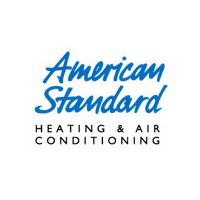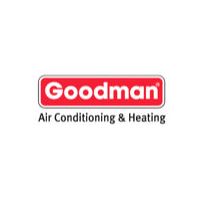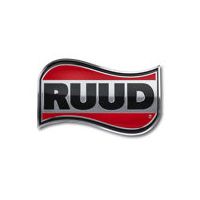FAQs
J & J Heating and Cooling, Inc.
Have a heating, cooling, or plumbing-related question? We have the answer. Check out these FAQs and give us a call today for more information!
-
How can I tell if my air conditioner is broken?
There are several things you can look out for that could indicate you need air conditioner repair in Lancaster, PA. Let's take a look at them.
1. Warm Air
When you feel warm air blowing out of your home’s vents, check the thermostat. Make sure it’s switched to the cooling mode and set it lower than your home’s current temperature. If your vents still blow warm air, restricted airflow or a compressor issue may be to blame.
At J & J Heating and Cooling, Inc, we recommend leaving HVAC repairs and maintenance to the pros rather than attempting DIY fixes. After all, your home’s cooling system is complex and requires careful calibration.
2. Insufficient Airflow
Poor airflow is a common sign that your air conditioner isn’t working efficiently or that a blockage is preventing air from moving through your home’s ductwork. A clogged air filter, broken motor, or something even more serious may be to blame.
If insufficient airflow is a common issue in your home, we may recommend investing in an energy-recovery ventilator. It can give your air conditioner a boost by exchanging stale air with fresh air every time your system cycles. Your air conditioner may also benefit from zoning systems. They can ensure you’re getting the right airflow and cooling power where you need it most.
3. Frequent Cycles
Your air conditioner should go through relatively routine cooling cycles no matter the weather. While you can expect your cooling system to turn on more frequently on the hottest days of summer, it shouldn’t cycle on and off constantly. If you notice frequent cycles, contact our team of cooling experts. A quick air conditioner tune-up may resolve frequent cycling. But it may also signal that you need a new air conditioner.
4. High Humidity
During the spring and summer, you can expect sticky weather outdoors. But that doesn’t mean you want to experience high humidity indoors. Your air conditioner should moderate humidity levels automatically.
If your cooling system can’t keep moisture levels within a comfortable range, you need an air conditioner repair. We’ll diagnose the issue quickly and let you know whether your air conditioner needs a simple re-calibration or if you should consider a whole-house dehumidifier instead.
5. Water Leaks
Your air conditioner relies on refrigerant to cool your home and may produce condensation as it operates. Neither of these liquids should accumulate or leak into your home, though.
Pooled water or an active leak around your air conditioner is an important sign that your cooling system isn’t running properly. Don’t wait to call our air conditioning service technicians. Leaks can quickly damage your home and may even lead to serious structural issues.
6. Bad Odors
If you smell unpleasant odors and suspect that they’re coming from your HVAC system, you’ll want to deal with the issue before it becomes more pungent. Fortunately, a quick diagnostic visit will tell us whether your air conditioner needs a tune-up and a complete cleaning session or if your cooling system needs a more high-tech solution.
Ultraviolet (UV) lamps can work wonders to eliminate persistent microbial growth in your air conditioner. Duct cleaning can also address odor issues that have accumulated in the ductwork.
7. Unusual Noises
Most air conditioners make low-level noise as they start up and shut down. But loud, sudden, or unusual noises can signal big problems with your cooling system.
Rattling or buzzing noises can indicate a loose component, whereas whistling or grinding noises can signal something more serious. This type of issue won’t typically go away on its own, so a professional tune-up is essential. Our team will find the source of the problem and recommend a solution that will keep your family cool and comfortable all season long.
-
When should I replace my air conditioner?
The average lifespan of an air conditioning system is 10-15 years, according to our team. A central air conditioner's lifespan is one of the more important factors to consider when planning to invest in a replacement unit. If your unit is close to 10 years old or older, you may want to consider replacing it instead of repairing it. Contact us today for more information about getting new air conditioning in Lancaster, PA.
-
How often should I change my air filter?
Generally, changing your air filter every 90 days, or three months, is what our team recommends. That can change based on where your home is located (i.e. dusty, dry climates versus humid ones), whether you have any pets, and what the age of your system and equipment is. Call us today to speak with an experienced AC and plumbing contractor in Lancaster, PA.
-
Why won't my AC system turn on?
Resetting your thermostat is often all that's necessary to get a stalling AC system working again. A tripped circuit breaker is another common reason why it won't turn on. Using too many appliances at once can trip the circuit breaker. For repairs and maintenance concerning air conditioning in Lancaster, PA, you've come to the right place.
-
Why is my water bill so high?
Call us today if your water bill has been higher than normal. A plumbing contractor Lancaster, PA residents recommend will help you find the cause, which could be one of the following issues.
- You have a water leak
- You're using more water than you think
- Your water heater is having issues
- Your town has increased its water rates
- You have a faulty water meter
-
Why should I call a professional plumber to unclog my drains?
You’ll want to contact a professional to fix it to ensure that the clog is completely gone and you aren’t doing further damage to your pipes. We offer professional plumbing repair in Lancaster, PA.
-
Why do I smell sewage in my home?
There are six main reasons why you’re smelling sewage in your home. Call our plumbing contractor in Lancaster, PA to determine which of the following you're dealing with.
- Loose or missing sewer trap plug
- Dried-out P-trap
- Clogged P-trap
- Broken toilet seals
- Clogged vents
- Sewer line breaks
-
How often should I check my well, sewer, or sump pump?
It's important to check your sump pump regularly to ensure it's working properly (or to find out whether you need a new one). This way, you won't caught off-guard. We recommend doing so every few months, and perhaps more often when spring approaches. When the ground thaws, it can bring rainwater with it, too. Contact us today for sump pump and AC repair in Lancaster, PA.
-
What is the lifespan of a water heater?
With regular inspection, draining, and flushing, you can expect a gas water heater to last anywhere from eight to 12 years, according to our team, and an electric water heater anywhere from 10-15 years. Give us a call if you're in need of water heater and air conditioner repairs in Lancaster, PA.
-
What causes low water pressure?
Low water pressure can be the result of several issues. Let's take a look at the possible issues that could lead to this and whether hiring a professional for plumbing and AC repair in Lancaster, PA is right for you.
1. Leaks
One main cause of low water pressure is leaking pipes because they divert water flow. Some leaks are easy to identify by sound or moisture in the area. Others will require that you have a plumber shut off all water taps in the house and record the water meter. If you check it a few hours later and it shows increased usage, then you likely have a leak on your hands.
2. Closed Valves
Most homes have two shutoff valves: a water meter valve and a main shutoff valve. If you notice low water pressure throughout the house, one of these valves might be closed or partially closed.
3. Buildup in Pipes
Blocked pipes are detrimental to good water flow. We've found that old steel pipes are prone to corrosion buildup over time. In our experience, metal pipes have a lifespan of up to 100 years, after which they are more likely to rust or break down, leaving buildup within the pipes. If you live in an older home, you may have to deal with corroded pipes at some point.
Debris or minerals can also accumulate within pipes. These pollutants can occur naturally, as water may leave behind minerals or other residue while it moves through the pipes.
4. Water Demand
Some residences just can’t handle a high demand for water. If someone is showering in each bathroom while you run the dishwasher, you might just get a trickle of water from the sink for handwashing. Although it’s annoying, this issue is easy to resolve with some coordination.
5. Shared Water Lines
Shared water lines, which are commonly found in multi-unit buildings and homes situated close to one another, can create low water pressure for several reasons. For one, if multiple households use the same water line at the same time, the line needs to distribute the water to multiple channels at once, which lowers the water pressure for each recipient. If you’re sharing a water line, you’re more likely to experience low pressure during peak usage times, like the morning and evening.
Shared water lines might also be connected to pipes that aren’t big enough to accommodate the flow of water from all of the connected units, leading to a drop in pressure. Plus, the longer the water needs to travel through shared pipes, the more pressure it loses along the way.
According to FieldCamp, U.S. residents use around 88 gallons of water every day. When multiple residences sharing a water line attempt to use that much water per day, they may find themselves with less-than-ideal water pressure as a result.
6. Failing Pressure Regulator
Pressure regulators help maintain a balanced water flow that is neither too high nor too low. If the entire home’s water pressure drops suddenly, this can be a clear indication of a broken pressure regulator.
7. Faulty Faucets and Fixtures
If you notice low water pressure only in one showerhead or one sink faucet, you’re likely dealing with a fixture issue. The fixture might be clogged or need a new aerator, or you might need to replace the fixture altogether.
8. Issues at the Water Company
Talk to a few neighbors to find out if they’re also experiencing low water pressure. If so, the problem could be your water company. It might be performing maintenance or repairs, which could lower your water pressure temporarily.
It’s possible the company could also be having issues that are affecting the local water supply. Call them directly or check their social media accounts for an update on when it’ll be fixed.
9. Old or Corroded Plumbing
Corrosion could be the culprit behind your low water pressure. As corrosion develops, it narrows your pipes over time, slowly reducing water pressure. If your water has a red or orange tint that runs clear after a few seconds, you could be dealing with corroded pipes.












Share On: